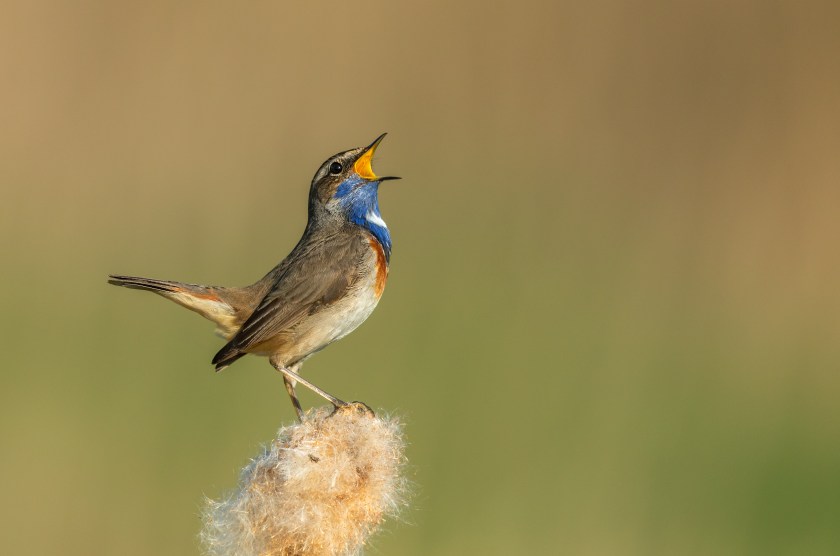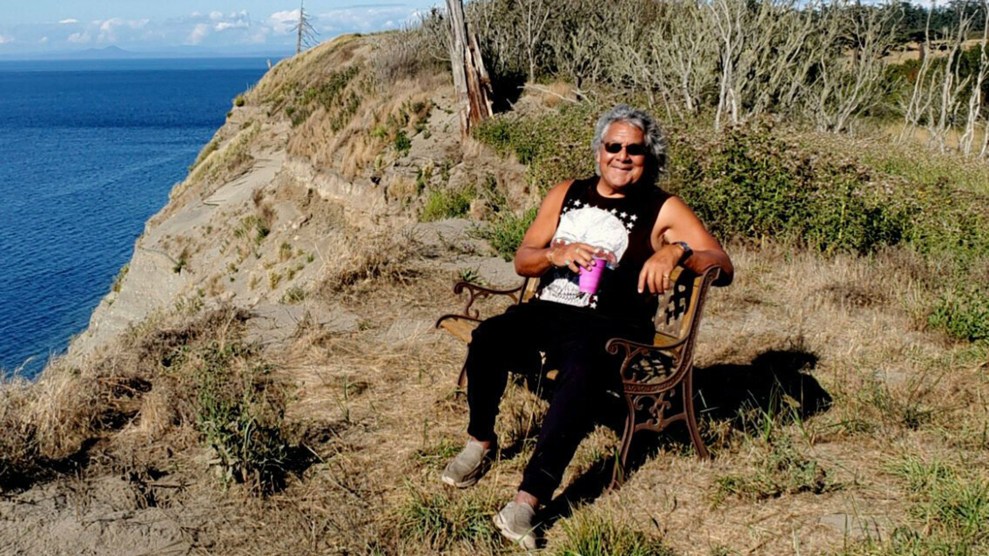
A male bluethroat calls from a cattail.Getty Images
This story was originally published by the Guardian and is reproduced here as part of the Climate Desk collaboration.
One swallow may not make a summer but seeing or hearing birds does improve mental wellbeing, researchers have found.
The study, led by academics from King’s College London, also found that everyday encounters with birds boosted the mood of people with depression, as well as the wider population.
The researchers said the findings suggested that visits to places with a wealth of birdlife, such as parks and canals, could be prescribed by doctors to treat mental health conditions. They added that their findings also highlighted the need to better protect the environment and improve biodiversity in urban, suburban and rural areas in order to preserve bird habitats.
The study, published in the journal Scientific Reports, tracked 1,292 participants’ everyday encounters with birds last year via a smartphone app called Urban Mind.
Over the course of two weeks, the participants, from the UK, Europe, the US, China and Australia, were prompted at random intervals to record how they were feeling, including whether they were happy or stressed, whether they could see trees, and whether they could see or hear birds.
The researchers found that participants’ average mental wellbeing scores increased when they saw or heard birds, including among those who disclosed they had been diagnosed with depression. This beneficial effect also lasted beyond the moment of encountering birds, with higher levels of mental wellbeing noted by participants who did not see or hear birds the next time they recorded their mood.
However, this positive effect did not persist if the participants did not encounter birds during the subsequent assessment of their mood, which the researchers said indicated “a possible causal link effect of birdlife on mental wellbeing.”
Andrea Mechelli, professor of early intervention in mental health at King’s College London, said: “We need to create and support environments, particularly urban environments, where bird life is a constant feature. To have a healthy population of birds, you also need plants, you also need trees. We need to nurture the whole ecosystem within our cities.”
He added that the positive effect of bird encounters on people with depression was significant because many “interventions that help so-called ‘healthy people’ don’t work for individuals with mental health issues.”
Mechelli said: “We know exercise makes everyone feel better. But it’s incredibly challenging to motivate someone with depression to exercise. Whereas contact with bird life is something that, perhaps, is feasible.”
The artist Michael Smythe, of Nomad Projects, which helped King’s College London develop the smartphone app for the study, said the research also posed questions about the link between health inequalities and access to nature, with other research showing deprived areas often had less green spaces than affluent areas.
Nomad Projects co-founded Bethnal Green Nature Reserve Trust, which built a pond last summer that Smythe said had attracted an “enormous diversity” of birds. “It’s a very therapeutic complex, biodiverse, abundant space within a massive housing estate between four artery roads,” said Smythe. “It’s now a place where people go en masse every day just to relax.”
Adrian Thomas, the author of the Royal Society for the Protection of Birds’ Guide to Birdsong, said the report’s findings came as no surprise as most people described their reaction to birdsong as joy.
He added: “Birdsong would have once been the natural soundtrack to all human lives, and I do think that it is embedded somewhere deep within our psyches. It is associated with spring and renewal and good times coming, which is just one of the reasons why we need to address this nature crisis and ensure that nature doesn’t fall silent.”

















